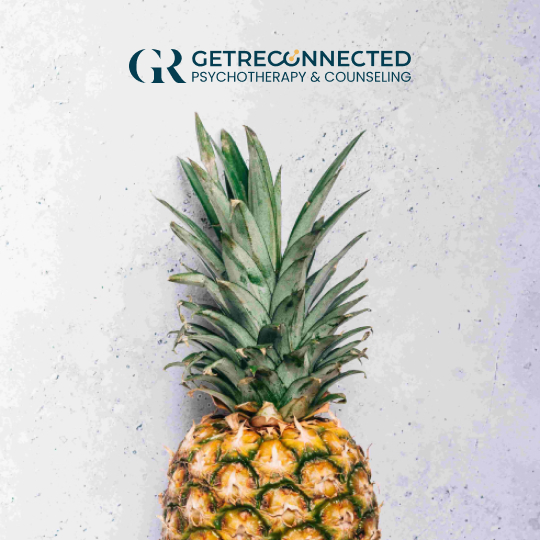Fertility Counselling in Toronto
Most people don’t expect that starting a family will be very difficult or uncertain, but many (approximately 1 in 6 couples according to statistics) face these challenges when they are ready and attempt to have children.
The anticipation of waiting and wondering whether you’ll achieve the dream of family building wasn’t part of your plan. Dealing with infertility can be very hard, and it usually comes with many invisible losses – the loss of hope, loss of privacy, loss of joy, loss of dreams, loss of confidence.
What is Infertility?
The official definition is the inability to produce a pregnancy that results in a live birth after 1 year of unprotected regular intercourse if you’re under age 35, and after 6 months if you’re over 35.
Know That You Are Not Alone
If you are battling this, you are not alone. Struggling to become pregnant or the loss of a ‘typical’ pregnancy can be overwhelming and a heartbreaking journey.
Do any of these feelings or experiences resonate to you?
- Feeling disappointed, anxious, sad, constantly worrying, or grieving due to challenges getting pregnant?
- Have you or a loved one felt guilty, ashamed, or angry due to conceiving challenges?
- Are there any strains in your relationships, anything from disagreements, disconnect, emotional distancing, or sexual difficulties?
- Feeling fearful and hopeless about the future?
- Having a tough time considering whether to become a single parent by choice?
- Do you feel alone and isolated in this journey?
- Difficulties maintaining or creating appropriate boundaries with others while you are going through this challenging time?
- Is it hard to make decisions – either when to initiate procedures, stopping procedures or considering alternative options?
- Do you find it difficult to manage your stress and worrying thoughts as you are in the middle of treatments?
- Is the two-week wait period overwhelming and find it difficult to focus on anything else?
- Are you and your partner having difficulties either knowing or agreeing on what to do next?
Remember that those are natural feelings and reactions and many (if not most) who are struggling to start a family have been cycling and continue to cycle through the emotional minefield of infertility.
Besides the difficulties to get pregnant, there’s also the stress, the ups and downs from so much hope to disappointment, constant worrying of whether you are doing everything ‘right’ or wondering if you are ever going to be successful in the end.
Did You Know?
Experiencing an inability to get pregnant can have a significant impact on your emotional well-being. Research suggests that individuals who are trying to conceive and are unsuccessful have similar levels of anxiety and depression as individuals suffering from cancer, heart disease, and HIV. The stress associated with an inability to conceive can arise from various factors, such as the disappointment of unsuccessful attempts to conceive, the uncertainty surrounding outcomes, and societal pressures.
Counselling at Get Reconnected can assist with:
- Sadness, anxiety, worries, hopelessness, and helplessness
- Miscarriages and recurrent pregnancy loss
- Stress and worries as you go through monitored cycles and assisted reproductive technologies (i.e., IUI and IVF).
- Relationship difficulties
- Grief and disappointments
- Decision making approaches (i.e., egg/sperm or embryo donation, surrogacy, childfree living or becoming a single parent by choice).
How Can Therapy Help?
Getting the support from someone who understands what you are going through in this challenging time is vital.
There are many benefits. Here are some of the ways therapy can help:
- Help you understand and make informed decisions about your treatment options.
- Help you manage difficult emotions and worrying.
- Help you explore your feelings and emotions, such as anger, regret, bereavement.
- Recognize and change repeated negative thoughts and feelings.
- Learn and practice stress reduction techniques.
- Help you learn skills to improve your communication with your partner.
- Provide support and understanding during a difficult time in your life.
Therapy Plans at Get Reconnected Psychotherapy Services
Coping with an inability to conceive can be a difficult process. One of the reasons why managing can be so difficult are the different phases that individuals and couples keep going back and forth to while trying to get through this very challenging time in their lives.
Advancing through the different phases is not a linear process. You might find yourself adapting relatively well in your journey but obstacles can push you back to an earlier phase and now you find yourself dealing with the pain and heartache that you are well too familiar with at this point.
At Get Reconnected, we will spend time getting to know you by listening to your story and joining you as you maneuver through the different phases of your fertility options.
There are three major phases that individuals navigate through while struggling to conceive.
- Surviving Phase
- Acceptance Phase
- Adjustment Phase
We are here to help with each phase and to bring yourself back when you are regressing to an earlier phase.
Surviving Phase
How to Recognize It:
You might be thinking: Why is this happening to me? Will I ever become a parent? Why isn’t this working? This is so not fair!
You might be feeling: sad, disappointed, frustrated, stressed, anxious, and angry
You might find yourself constantly looking things up on the internet and trying to learn everything you can in order to have some control back in your life.
How We Can Help:
Stress management techniques and coping tools to address stress, worry, frustration, sadness.
Skills to manage ongoing stressors
Self-care practices that work specifically for you
Provide you with support and resources as you manage procedures, third party reproduction such as donor egg/sperm/embryo.
Acceptance Phase
In this phase, the focus shifts toward finding ways to alleviate emotional distress. This could involve coping methods, emotional support, and self-care practices that can help manage this stressful time.
How to Recognize It:
You might be thinking: “I got this, I can do it.”
You might be feeling: a general sense of hopefulness and optimism, confidence and calmness
Obstacles might push you back to the understanding phase (i.e., losses may strip away the hope and courage you have been cultivating)
How We Can Help:
Processing grief, working through disappointments and the loss of hope from unsuccessful cycles, pregnancy losses, secondary infertility, selective reduction/terminations, chemical pregnancies, ectopic pregnancies.
Address and attempt to overcome the obstacles that come your way by creating a strategy of responding to unexpected future events and finding ways to tolerate uncertainty
Tools to effectively manage the loss of hope, relationship strain, loneliness
Work on communication skills that suit your needs. We will work on how to communicate with others to receive the support you need.
Engage in decision making approaches by looking at different options and making a decision on what to do next (next steps, surrogacy or adoption, single motherhood by choice, choice to live child-free).
Adjustment Phase
As the counselling progresses, you will be continuously supported in making adjustments to your mindset and lifestyle. This phase encompasses adapting to the circumstances, exploring available options, and embracing a new sense of identity and purpose beyond your struggles.
How to Recognize It:
You might be thinking: “I’m a different person now. I learned so much about myself.” “This challenge taught me about my needs and priorities.” “I learned how to be resilient.”
You might be feeling more compassionate towards yourself.
You might be able to face challenges from an understanding and acceptance perspective and not resist them.
How We Can Help:
Explore personal values and how this journey has led you here.
Reflect on your journey.
Create tools to address the pressure of parenthood after infertility and the constant dread and pressure you put on yourself to be the ‘best parent.’
We can develop skills on how to cope with postpartum anxiety and depression. Tools and strategies to adjust and thrive in a child-free lifestyle.
What To Expect From Your Sessions
Initial consultation to get to know your challenges at this time
Book a complimentary 15-minute confidential phone consultation with Delia Petrescu at Get Reconnected Psychotherapy Services. This appointment will be a discussion of your concerns and how we can support you at this time.
Assessment and first counseling session
In your first session, also called the intake or assessment session, your counselor will ask you questions about your personal life and inquire about your fertility journey. Also in this session, you will work collaboratively with the counselor on setting goals or markers for the sessions. Goals can range from making decisions, managing stress, handling emotions better, ways to maintain hope and how to deal with misfortunes, all of which are addressed in our counselling services.
Follow-up and continuing sessions
Continue to work on the goals established in the assessment session.
Our Specific Services

Individual Counselling
Navigating the path of trying to conceive a baby and undergoing fertility treatments is an emotional journey. We understand the ups and downs, from anticipation and excitement to stress and disappointment. Our holistic approach combines mind and body techniques like mindfulness, visualization, and cognitive-behavioral. We provide personalized support to help you address concerns such as feelings about yourself, past traumas, family dynamics, past miscarriages, or questions surrounding parenthood.

Couples Counselling
The decision to start a family often arises during a loving and affectionate phase of a relationship. But fertility treatments can bring significant stress, affecting you emotionally, physically, and financially. This journey can lead to tensions and misunderstandings, leaving you feeling overwhelmed and distant from each other. It may also impact intimacy, turning romance into a chore. Using evidence-based techniques from Emotionally focused and Gottman Institute methods, we can guide partners in recognizing negative patterns and reigniting emotional connection.

Group Infertility Counselling
Stress is a common part of life, and fertility challenges can intensify it. Our mind-body fertility approach can help equip you with techniques to manage the impact of stress. In sessions, we will identify the sources of stress, explore its role in infertility, and practice breathwork techniques to reduce the nervousness and promote calm, and learn how to shift negative thought patterns. Each week, you will practice experiential exercises, discussions, guided meditations, and practical tools that you can apply in your daily lives. The structure of the sessions allows for a gradual progression from understanding stress to applying various techniques for emotional regulation, self-care, and improved communication.
Blog

Two-Week Wait After IVF: 13 Tips To Survive the Toughest Part of Fertility Treatments
If you’ve been trying to get pregnant for a while and recently went through IVF, you know that waiting to find out if it worked

Finding Hope Through The Infertility Journey
Explore the emotional landscape of infertility at Get Reconnected. Learn how to cultivate hope and resilience during your fertility journey.

Surviving Infertility: Coping with the Ups and Downs
Learn effective coping strategies for the emotional challenges of infertility. Discover support and guidance for your journey at Get Reconnected.
Our Fertility Counsellor

Delia Petrescu
Ready for Therapy?
We’ll use what we learn in our first session to make a plan that’s just for you.
For more information about our approaches, don’t hesitate to get in touch with us at [email protected]
Contact Us
Fertility Counselling FAQ's
It is a type of support that can help individuals and partners deal with the emotional stress and challenges brought by conception challenges. It provides emotional support, stress-relief tools, and assistance in making decisions about treatments and alternatives.
It can be beneficial to individuals or partners who experience conception difficulties, planning to undergo conception assistance, dealing with stress and emotional burden of this journey, or exploring other options like adoption or living child-free.
There’s no ‘right’ time. An inability to reproduce is a deeply personal and emotional issue, and support can be sought at any stage – whether you’re just starting to have concerns about fertility, already undergoing procedures, or dealing with the emotional aftermath of fertility treatment.
During sessions, you can expect to discuss your feelings, fears, and concerns related to your journey. You will learn ways to manage stress, help with decision-making, and address any relationship issues that might arise due to an inability to start a family.
It can help by providing support, addressing your feelings about your current journey, guide in decision-making, and improving your overall emotional well-being during this challenging time.
Coping strategies can also be developed to help you and your significant other better understand the process of the procedures, survive disappointment, and find ways to communicate better while learning how to cope with infertility.
While counselling itself doesn’t directly impact your ability to become pregnant, it can greatly reduce stress levels, and high stress levels may contribute to difficulties conceiving in some people. Thus, by mitigating stress and improving mental health, receiving support may indirectly improve outcomes.
The duration varies widely depending on the individual needs. It might involve only a few sessions or might continue over several months or years, depending on the circumstances.
Depending on the individual needs, there are different types – individual, couples, or groups.
In individual sessions, you will work one on one with the therapist to understand your feelings, emotions, and reactions surrounding your troubles in getting pregnant and develop a plan for managing stress, exploring options, and making decisions. As you work collaboratively with the therapist, you can develop tools to better manage your stress and concerns.
In couples sessions, the focus is on the relationship and how it has been affected. It can help you and your partner communicate more effectively about your fertility concerns by addressing any underlying issues that may be contributing to your relationship difficulties. Support can also help address and find common ground when there are disagreements on what the next steps should be or when to stop procedures.
Groups can be another great resource for both individuals and partners to connect with others who are going through similar experiences and find comfort in knowing they are not alone. It also provides an opportunity for participants to learn about new resources and interventions that may be available.
The type of support you receive will depend on your specific needs and difficulties you are experiencing and need help or assistance with.
Undoubtedly, therapy can play an incredibly crucial role in decision making. This specialized form of mental health care offers a supportive environment to explore emotions, explore options, and make informed decisions about your journey. It can you help understand options, the implications of choices, and how to manage stress.
Yes, conception difficulties often put a strain on relationships. Counselling can provide insights and a safe space for open communication, helping to strengthen your relationship during this challenging journey.
Before your first session, write down any issues or questions you want to discuss. Be prepared to talk about your emotional experiences related to your journey. Remember, it’s okay to be emotional or unsure – that’s the purpose of getting support, to help you manage these feelings.
The causes can be due to a variety of reasons. In women, common causes include ovulation issues, damage to fallopian tubes or uterus, or complications with the cervix. Age can also contribute to an inability to conceive because a woman’s fertility naturally decreases as she gets older. In men, reproductive challenges are often due to concerns with the quality and quantity of sperm.
Doctors usually start by performing a physical exam and going through your sexual and medical history. They might then run certain tests (i.e., semen analysis for men, and ovulation tests, hysterosalpingography, ovarian reserve testing, and more, for women).
It is quite common, especially among couples struggling with infertility. About 1 in 6 partners have difficulty getting pregnant or staying pregnant according to Statistics.
While stress doesn’t cause infertility directly, it can push us towards unhealthy behaviours which can affect our fertility. It might also affect the functioning of the hypothalamic-pituitary-ovarian axis, disrupting the hormonal balance that manages reproduction.
Challenges in getting pregnant is not just a female problem. About one-third of cases are due to female factors, one-third are related to male factors, and the rest are caused by a mixture of male and female or by unknown issues.
Counselling is an important component of the In Vitro Fertilization process. In Vitro Fertilization is a complex procedure that can be emotionally and psychologically challenging. This specialized kind of support can help individuals make informed decisions about the procedures, determine the best course of intervention for their specific needs, and prepare for the possible emotional, financial, and physical toll of this procedure.
It can also help understand the potential risks associated and make sure they are comfortable with the decision to move forward with assisted interventions. During sessions, partners will discuss the pros and cons of the procedure, the cost involved, and any potential risks associated with the procedure. By doing so, partners can make sure they understand exactly what they are getting into before committing to the procedure.
Additionally, counselling can provide guidance on how to manage expectations, as well as dealing with stress and disappointment if the procedure is not successful. It helps partners create realistic goals and expectations for their journey and prepares them to handle any potential disappointments that may arise.
For more information about our approaches, please contact us at [email protected]
If you are ready to book an introductory session, you can do so here.





